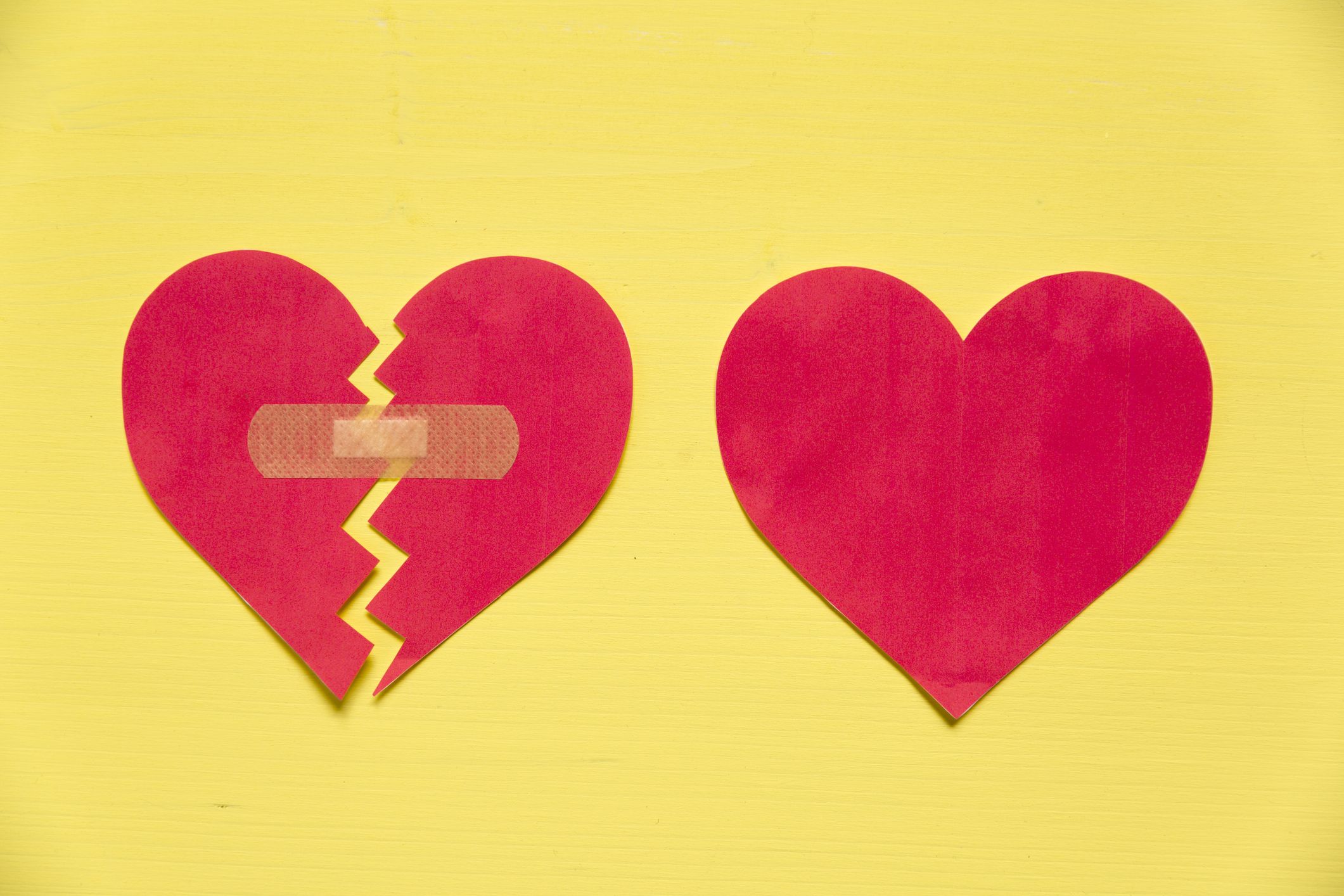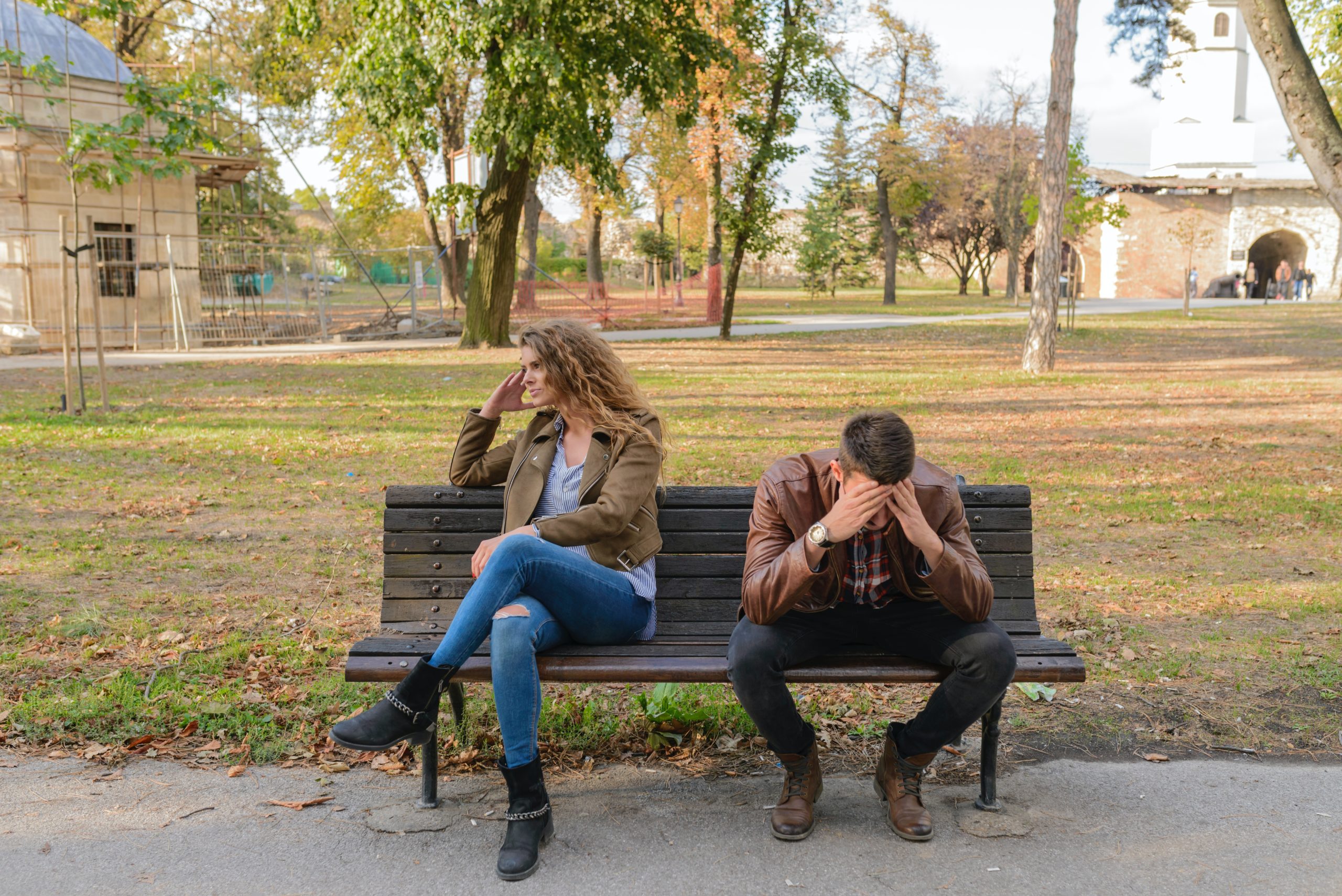Falling in Love and Heartbroken
What happens to your body when you’re in love—and when you’re heartbroken Not only do we need romance, but it can help improve our health and even lead to a longer life. Plus, self-care is the key to continuing love's benefits.
Regardless of whether romance is on the menu for you this Valentine’s Day, your brain is always trying to reward your investment in social interaction or motivate you to bond with others when human connection is in short supply.
In platonic or romantic love, there's no getting around the body's need for human-to-human interaction.
"Love is a biological necessity that is as vital to a person’s wellbeing as fresh water, food, and exercise," says Stephanie Cacioppo, a neuroscientist at the University of Oregon and the author of the book Wired for Love: A Neuroscientist’s Journey Through Romance, Loss, and the Essence of Human Connection. 
While the heart usually gets the credit, most of the benefits associated with love originate in the brain which is evolutionarily programmed to produce and release hormones when we experience attraction, affection, and attachment.
"Because love is so important to our health, wellbeing, and reproduction, it could not be left to learning," says Sue Carter, emeritus director of The Kinsey Institute in Indiana and a renowned biologist who specializes in social bonding.
Understanding how signals are received and transmitted by the brain, plus what happens when these signals are in short supply can be helpful when navigating the worlds of friendship, love, heartbreak, and loss.
The part hormones play
The mind and body use a vast network of neurotransmitters and molecular chemical messengers to coordinate different functions and influence our emotions. These chemical messengers, called hormones, are part of the body's endocrine system. The endocrine are linked together though important structures in the brain that include the hypothalamus, the hippocampus, the amygdala, the thalamus, the basal ganglia, and the cingulate gyrus.
Collectively, these structures make up the limbic system—one of the oldest parts of the brain in evolutionary terms. This is where memories are stored and smells are processed, and it's the primary brain region involved in attraction and affection.
It allows various hormones "to reinforce our desire to introduce ourselves after a simple glance, reduce our fears of being vulnerable when we first meet a new partner ... and feel as if we are soul mates with someone over time," says Cynthia Kubu, a neuropsychologist at the Center for Neurological Restoration at Cleveland Clinic in Ohio.

The seven love hormones
When it comes to the emotions we associate with love, seven hormones play especially important roles. These chemicals include the following:
1) Oxytocin is referred to as the "love hormone" because it helps form social connections, increases trust, and deepens feelings of attraction. It's released when two people engage in conversation, touch, play together, or participate in other forms of meaningful interaction.
"Oxytocin increases our feelings of bonding, attachment and commitment to someone," says Theresa Larkin, an associate professor in medical sciences for the Graduate School of Medicine at University of Wollongong in Australia.
Oxytocin has been shown to sometimes negatively influence recollections of loved ones, however, illustrating that this hormone also has a dark side.
2) Vasopressin stirs feelings of excitement associated with loving another person. It's stimulated by some of the same behaviors that release oxytocin, but studies show it's also released when a threat is present, causing us to feel more protective of those we care about.
In this capacity, research demonstrates this chemical can also be responsible for feelings of possession or jealousy—emotions that can be tempered by the release of oxytocin.
"Oxytocin and vasopressin do a sort of dynamic dance that helps to explain the benefits and costs associated with various aspects of love," explains Carter.
3) Dopamine is among the body's most studied feel-good reward hormones. It's activated by things that make you feel good—food, exercise or drugs. In couples, a flood of dopamine often accompanies kissing or having sex.
"When dopamine is released, it activates the reward pathways that cause the feeling of a love 'high' and increase our desire and motivation to be with our love interest," says Larkin. This response is strong enough that it has been likened to the euphoria of using a drug as strong as cocaine.
4 and 5) Testosterone and estrogen, also known as our "sex hormones," play the important roles of causing couples to want to reproduce and are responsible for "our basic human desire to have sex," says Larkin. She says these are also the hormones most often affiliated with infatuation or lust. Another way of looking at it is that these hormones motivate one to have sex, while dopamine rewards the action.
6) Noradrenaline produces physiological responses when meeting a new person or falling in love. These may include a racing heart, increased energy, or sweaty palms. This hormone is also associated with memory storage, which is why many couples can recall their early days of dating so vividly.
7) Serotonin is one of the few chemicals that’s been shown to decrease during some stages of attraction. These lower levels are similar to those of individuals living with obsessive-compulsive disorder or OCD. Sandra Langeslag, a behavioral neuroscientist at the University of Missouri-St. Louis, has published research on this and says it shows how "people who are in love and patients with OCD resemble each other in the sense that they both have obsessions."
Though different activities can cause the release of any of these chemicals, hormones aren't always triggered in isolation and many things can cause more than one chemical to be produced at the same time. Dopamine and serotonin, for instance, both contribute to obsessive thoughts.
"Love is an exceedingly complex multi-sensorial phenomenon that involves all our senses and affects the brain in many profound and mysterious ways," says Jacquie Olds, an associate professor of clinical psychiatry at Harvard Medical School.
The health benefits of love
Regardless of why or when love-related hormones are released, each chemical is associated with different mental and physical health benefits.
"When the love network is turned on, it activates the brain’s reward centers, releasing a cascade of hormones, neurochemicals, and natural opioids, that make us feel joy and also help our body heal and our mind deal with pain," says Cacioppo.
Some of the proven benefits of having love in your life include reduced stress, better sleep, improved immune health, reduced pain (research shows that having more oxytocin in the blood helps with healing), less depression, enhanced problem-solving skills, improved cognitive function, and even longer life.
Secure relationships of both the romantic and non-romantic variety, "create biological states that promote relaxation, growth and restoration," Carter says. "Across the lifespan, building loving relationships is critical to good health."
Why you are blinded by love
Different stages of a relationship may confer varied benefits. Research shows that some hormones are more abundant during the initial phase of falling in love, while other hormones provide long-term benefits.
Noradrenaline, for instance, is released more often at the beginning of a couple's relationship when many unknowns are present, putting the brain in a ‘proceed with caution’ mode.
"Early in a relationship, there is heightened adrenalin, which causes feelings like butterflies in the stomach and a faster heart rate. There is also reduced activity in the parts of the brain that help us to make judgements, which is why you may be 'blinded' to another person’s faults in early love or infatuation," explains Lucy Brown, a clinical professor of neurology at Albert Einstein College of Medicine in New York.
As that relationship grows and levels of commitment increase, some of the initial high passion that's been rewarded by dopamine is replaced by other hormones, says Brown.
"Oxytocin plays a more important role in sustaining long-term relationships," she explains. It also contributes to feelings of safety and security once uncertainty and fears of getting hurt subside. Vasopressin similarly plays a regular part in long-term relationships. It promotes devotion and increases a sense of protection and pride over one's relationships.

What happens when we break up?
While the physical and mental health benefits of these hormones are significant, "we pay the price of having emotional responses when we lose our companions," says Carter.
Breaking up can mean losing a steady stream of feel-good hormones like dopamine and oxytocin, and, at the same time, experiencing an increase in stress-related hormones like cortisol and norepinephrine.
“A breakup suddenly deprives us of the neurotransmitters we’ve grown used to,” says Olds. “Just as an addict hates going cold turkey, a bad breakup causes huge distress.”
For some people, this includes even physical discomfort.
"A breakup creates a stress response in the body and brain, and the brain reacts as if there is a physically painful stimulus," explains Brown. A sudden longing often follows as well—similar to an addict going through withdrawals. "You search for the person who’s no longer there, for the positive feelings you once associated with your beloved," explains Cacioppo. "This is what heartbreak or unrequited love looks like."

Kubo says these feelings of loss or longing can manifest as lost appetite, changes in weight, sleep disturbances, anxiety, or depression.
Such feelings can be amplified significantly if one’s partner dies. In extreme cases, this can be deadly for the person in mourning.
"Oxytocin is critical in protecting all tissues, but especially the heart," says Carter.
When a steady stream of it suddenly stops with the death of a loved one, it can create a cardiovascular response. For many people, this, plus the release of stress hormones that accompany sudden loss can cause blood pressure to spike, one's heart to race, and difficulty breathing.
Though such symptoms are the worst physical manifestations for most people, individuals with an underlying heart condition, "could be at risk of suffering from a heart attack," says Larkin. This is where the rare medical condition known as broken heart syndrome factors in.
"One groundbreaking study of grief from the 1960s looked at 4,486 widowers in Britain," explains Cacioppo. "During the first six-months after they lost their spouses, they had a 40 percent higher risk of dying than a married person their own age."
Fortunately, the worst outcomes associated with separation from a loved one—either through a breakup or death—lessen over time as we form and strengthen new relationships.
"When social bonds are broken by separation or loss of a partner, the nervous system needs time to re-equilibrate and adjust," says Carter. "We may literally experience the pain of a lost relationship forever, but as new bonds form, those may help heal the emotional pain associated with loss."
Self-care can also help with healing. "After the hardest first days or weeks, it is important to do things that you enjoy to reduce your stress hormones and to increase your love hormones," advises Larkin.
What to do based on where you are
It can also be helpful to recognize where you are and possibly expand your comfort zone to form more meaningful connections with existing loved ones or new associations.
If you're in a relationship that seems to be lacking in love and the feel-good hormones that accompany it, Langeslag suggests spending more time with your partner, focusing on their strengths and your happy memories together, or engaging in physical intimacy as ways of triggering the release of these chemicals and improving your connection.
And if you're not currently in a romantic relationship, hormones associated with love can still be triggered by spending quality time with family members and close friends, hugging them, enjoying nature, and even interacting with your pets at home, says Larkin.
The one thing you shouldn't do is embrace a life of being alone. Like many other mammals, humans have not evolved to live as solitary creatures. "Love is not optional. It is not something we can do without," says Cacioppo. "Love is a biological necessity."
Source
https://en.wikipedia.org/wiki/Can%27t_Help_Falling_in_Love
https://www.oprahdaily.com/life/relationships-love/a29267937/how-to-know-falling-in-love/
https://www.uow.edu.au/media/2023/what-happens-in-our-brain-and-body-when-were-inlove.php#:~:text=Dopamine%20stimulates%20the%20reward%20pathways,the%20stomach%20and%20increased%20energy.
https://www.verywellmind.com/what-happens-in-your-brain-when-you-fall-in-love-7971808
https://www.hcf.com.au/health-agenda/women/strong/how-to-deal-breakup#:~:text=%22We%20see%20changes%20in%20our,our%20sleep%20can%20be%20disturbed.%22
https://www.heysigmund.com/your-body-during-a-breakup/

















































